#Jacques Murnau
Explore tagged Tumblr posts
Text

the kindest tf2 sfm fanart i actually love emesis blue it is a masterpiece
#emesis blue#emesis blue fanart#tf2#team fortress 2#team fortress two#team fortress fanart#tf2 sfm#tf2 soldier#tf2 spy#the detective#the smoker#Jacques Murnau#jane doe tf2
800 notes
·
View notes
Text


#gif content#emesis blue#jacques murnau#the smoker#😂 that's what he's called in the script#jacques morneau#tf2
27 notes
·
View notes
Text
"i am the only sane man here." jacques read the room. we got:
Fritz, who had to listen to his beloved patient get tortured to death with a drill, now has a body count of like five i think
war-traumatized Jane who wanted to find a murderer ends up losing his only best friend to hypothermia and just goes down a downward spiral from there
william afton crispy chicken skin Spy manipulating both men into believing LIESSSS
#NOBODY in that room was sane lmfao#everyone had lost it by that point in the movie#this is why i love emesis blue#sane man my ass#emesis blue#fritz ludwig#jane doe tf2#jacques murnau#team fortress 2#fortress films#tf2
38 notes
·
View notes
Text
Emesis Blue, Actor Au Part 3:

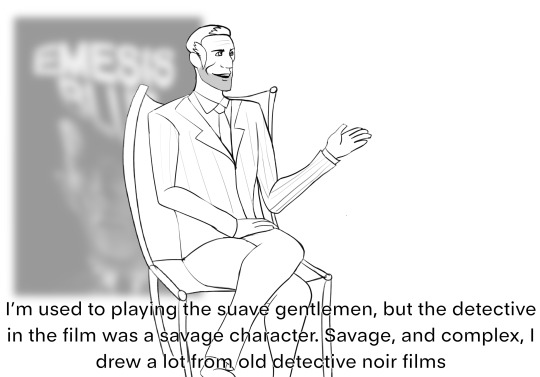
Meet Scout's Ma and Jacques Murnau, also known as The Detective in Emesis Blue!
part 1 Fritz Ludwig : here
part 2 Meet Jeremy: here
part 4 Dell Conagher: here part 5 Jane Doe and Tavish Finnegan Degroot! here
#tf2 au#tf2 spy#tf2 scout's ma#emesis blue au#team fortress 2#team fortress 2 fanart#tf2 Jacques murnau#tf2 the detective#actor au#the smoker
58 notes
·
View notes
Text
Spy in Emesis Blue is a tragic character, not because he is a sad pathetic little guy (he is, but not the point). He is tragic in a sense where everything happened to him, including his death, could have been avoided.
But he had to be someone fundamentally different. He had to be someone else, anyone who isn't him & his hubris & his greed. Jacques Murnau is doomed from the start.
#you can either change yourself into someone that's no longer you to avoid the tragedy#or the tragedy will change you in ways that you're no longer yourself#team fortress 2#emesis blue#tf2#spy tf2
48 notes
·
View notes
Text
okay got tagged by @bredforloyalty to make a poll of which of my favourite films matches my vibe most. i tried to pick some that i think would reveal something about me but that aren't too obscure. also i forgot every movie i've ever liked. can't think of anyone to tag but you do it next 🫵





didn't put in apocalypse now cause it would be too obvious or stuff like jésus de montréal cause none of yous have seen it. and so on.
7 notes
·
View notes
Note
Hunt for Tragedy: Chapter One
A lot can change in 7 months. Sometimes, it's good change. Sometimes it's bad. But for Scout, it's bad change.
7 months ago, Scout reunited with his father, who had left when Scout was a baby. And it would turn out his father was Spy, a sassy, irritable Frenchman and Scout's coworker.
Spy died only a week later, sacrificing himself to save his son and his teammates from an otherworldly beast.
But to the Administrator, the death was merely a waste of money. As she said, "mercenaries are expensive."
Miss Pauling talked her into giving everyone time off so she could find a replacement for Spy, as well as new mercenaries for BLU Team.
Time off was the last thing Scout wanted. Almost everyone would end up leaving the base, except for Pyro, Engi, Sniper, and Medic.
Scout returned to Boston with his older brother, Jonah Bidwell.
His last survivng family member.
Scout stopped answering his teammate's calls. He didn't want to hear the fake pity in their voices.
Sniper left messages for him.
But they started to get shorter, until 4 months had passed, and Scout got one last message from the Australian: "Call me back."
Scout didn't care that they stopped calling.
He's lost too much to care.
-
Jonah opens the bedroom door, and enters. Scout doesn't look as he enters, and pretends to be sleeping.
"Scout? I made breakfast." Jonah says. Scout can smell the pancakes, but says nothing.
"I know you're awake, Scout." Jonah pokes him.
"I'm not hungry. Fuck off." Scout glares at him.
"Don't lie to me." Jonah sits on the bed, snatching the pillow away. "I know I can't force you do to anything, but... at least eat the pancakes. It's Mom's recipe. Your favorite?"
Scout still says nothing.
"Why don't you call Sniper back?" Jonah asks.
"I don't want to talk to him." Scout sits up, irritated. "Can you go away?"
"In a minute, fine... but just listen for a moment, okay?" Jonah looks at Scout, his face serious. "I did a bit of digging about Spy's family. You had a half-sibling that died in 1941."
"Is that it?" Scout frowns. "You're my half sibling. Hell, every brother's a half brother--"
"There's more." Jonah cuts him off. "Spy's name was Jacques Murnau, and it turns out his family was really rich. They had a mansion in Paris. Jacques inherited the Murnau will after his parents and sisters were killed in a fire. And he passed that will onto you. Scout, you've inherited a fortune."
Scout stares at him in silent shock.
"What?"
"There's more according to the will, but it's located in Paris. If you want--" Jonah starts.
"We're going to Paris! As soon as freakin' possible!" Scout sits upright. "I gotta see this to believe it."
"Alright." Jonah smiles. "I'll call Miss. P and see what she can arrange. In the meantime, why don't you eat and take a shower? And... maybe call Sniper back."
"...alright." Scour nods, and Jonah leaves the room to let Scout eat.
-
Scout stares at the phone. He has to call Sniper. But would Sniper be willing to listen?
What would Scout even say? They hadn't talked in months.
With an ever-so-slightly shaking hand, Scout dials the number written on a piece of paper, and listens to the dialtone as somewhere many miles away, a phone rings.
"Hello?" An Australian voice asks, and Scout's voice catches in his throat.
He has to talk.
"Hey, Snipes." He says. "You wanna to go to Paris?"
---
I hope you like it! It isn't much, but Chapter 2 is being revised and edited currently! An IRL friend agreed to help me with writing by assisting with editing and serving as peer revision, so it might take a bit for every chapter to be released. But I hope you enjoyed! I'm almost done setting up a seperate blog (had some issues with making a new email to use), so that'll be up and working sometime this week!
THIS IS SO GOOD ANON!
I can't wait to see the new blog, thanks for keeping us updated:)
8 notes
·
View notes
Text
Favorite First Time Watches of 2023
After Hours (1985) dir. Martin Scorsese

The Banshees of Inisherin (2022) dir. Martin McDonagh

Black Girl (1966) dir. Ousmane Sembène
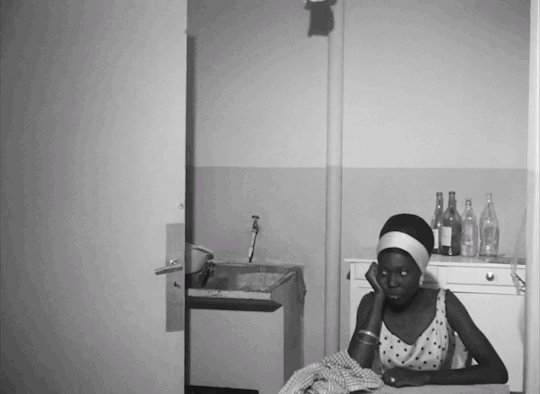
Bringing Out the Dead (1999) dir. Martin Scorsese

Cairo Station (1958) dir. Youssef Chahine
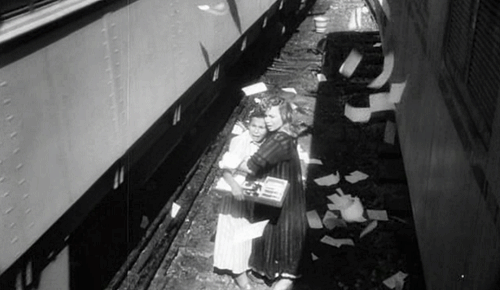
Cemetery Man (1994) dir. Michele Soavi
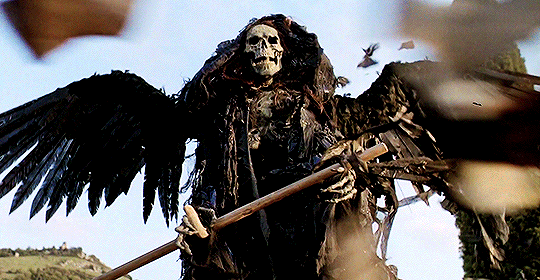
Chicago (2002) dir. Rob Marshall

Crimes of Passion (1984) dir. Ken Russell
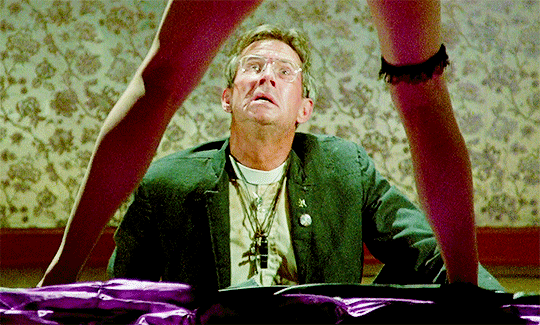
Elvis (2022) dir. Baz Luhrmann
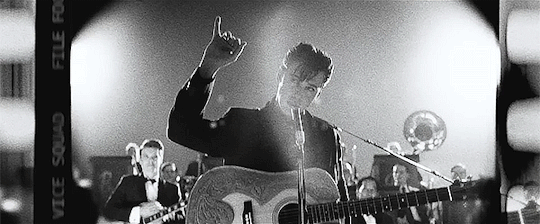
Faust (1926) dir. F.W. Murnau

Female Trouble (1974) dir. John Waters
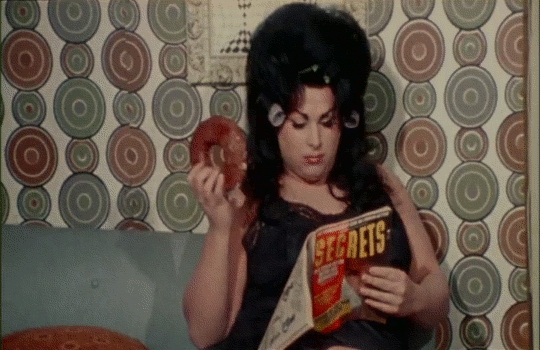
Fire of Love (2022) dir. Sara Dosa
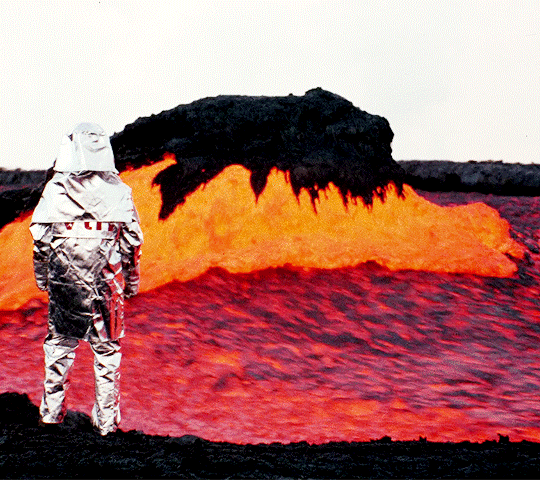
Footprints (on the Moon) (1975) dir. Luigi Bazzoni and Mario Fanelli
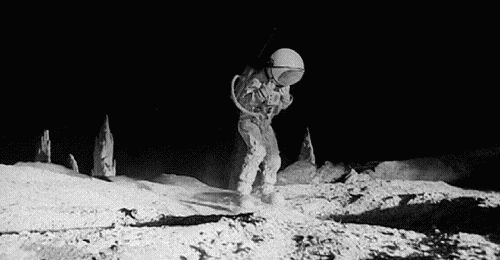
Funeral Parade of Roses (1969) dir. Toshio Matsumoto
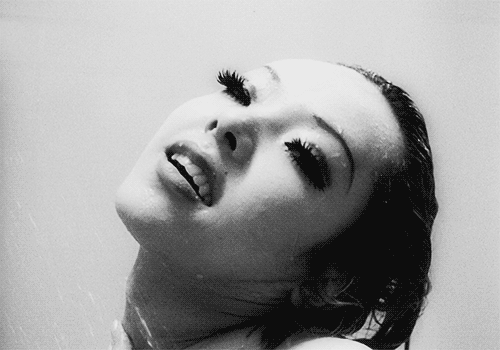
High and Low (1963) dir. Akira Kurosawa
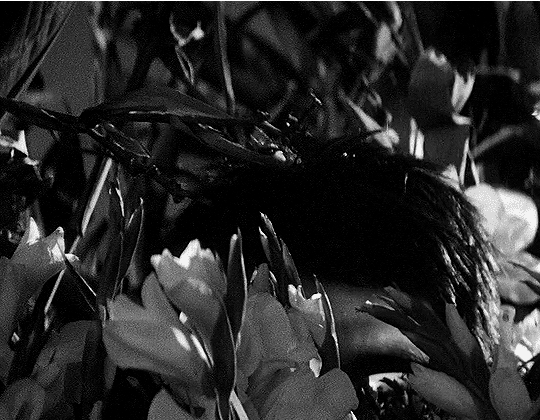
In Search of Darkness: Part III (2022) dir.David A. Weiner
Let the Right One In (2008) dir. Tomas Alfredson
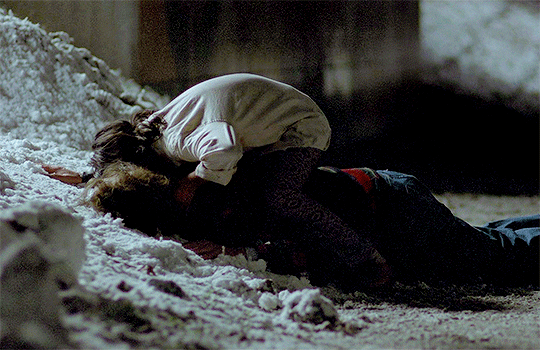
Lingua Franca (2019) dir. Isabel Sandoval
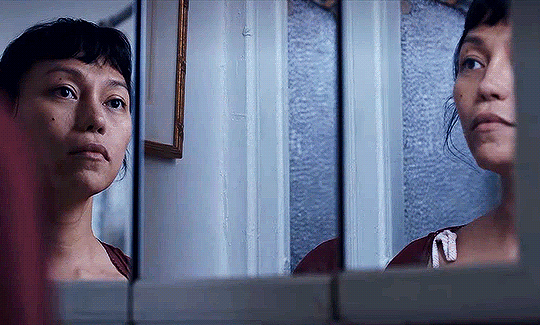
Odd Man Out (1947) dir. Carol Reed
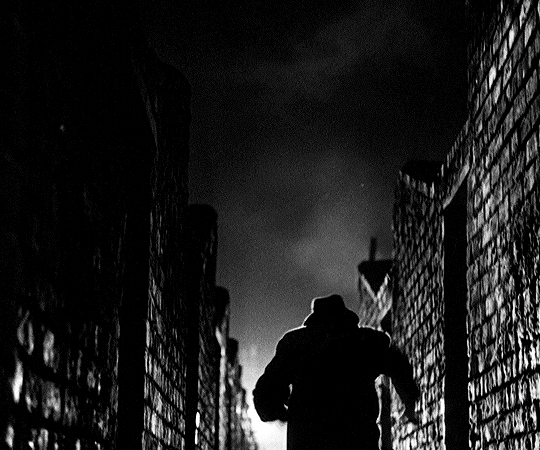
Original Cast Album: Company (1970) dir. D.A. Pennebaker
Paper Moon (1973) dir. Peter Bogdanovich

Pearl (2022) dir. Ti West

Petite Maman (2021) dir. Céline Sciamma
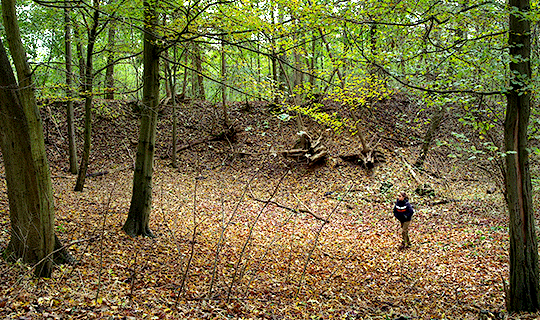
Porco Roso (1992) dir. Hayao Miyazaki
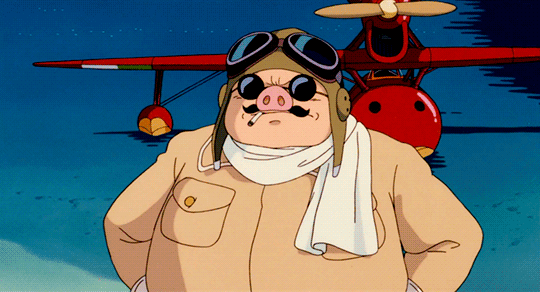
Puss in Boots: The Last Wish (2022) dir. Joel Crawford

Querelle (1982) dir. Rainer Werner Fassbinder
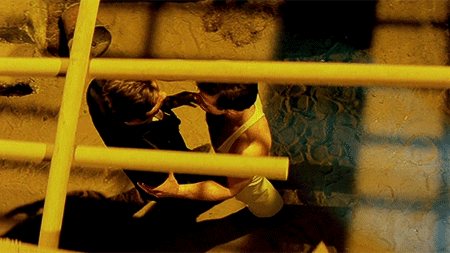
The Silent Partner (1978) dir. Daryl Duke
Slap Shot (1977) dir. George Roy Hill
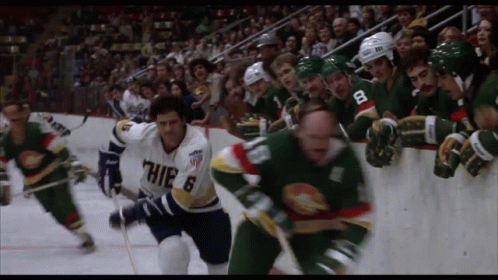
Southern Comfort (2001) dir. Kate Davis

To Live and Die in L.A. (1985) dir. William Friedkin
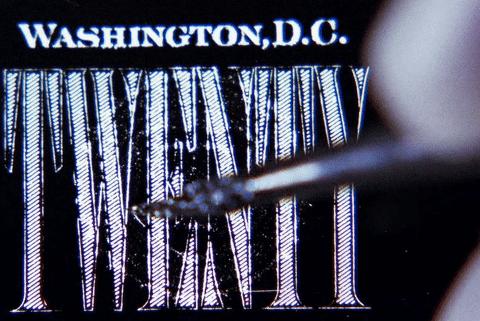
Train to Busan (2016) dir. Yeon Sang-ho
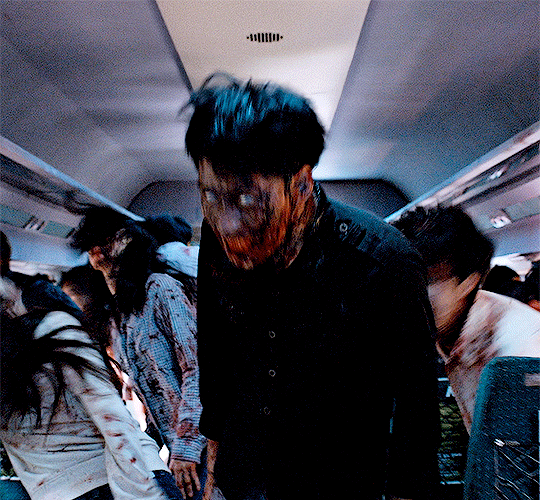
The Umbrellas of Cherbourg (1964) dir. Jacques Demy
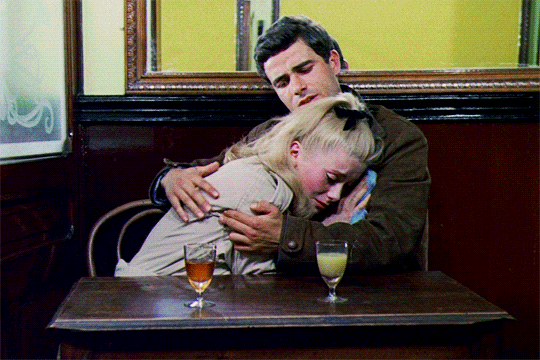
X (2022) dir. Ti West

#movies#2023#1985#2022#1966#1999#1958#1994#2002#1984#1926#1974#1975#1969#1963#2008#2019#1947#1970#1973#2021#1992#1982#1978#1977#2001#2016#1964#year in review
4 notes
·
View notes
Text
Top 100 Films
Just wanted to put this somewhere for the sake of documentation, might do this once a year to see how much the overall list changes.
Not ranked, but the list is done by release date, earliest to most recent. Includes short and feature length films (plus one TV series, and two serials, if you want to be specific):
• The Musketeers of Pig Alley (1912), dir. D.W. Griffith
• Fantômas (1913), dir. Louis Feuillade
• Les Vampires (1915), dir. Louis Feuillade
• The Doll (1919), dir. Ernst Lubitsch
• Foolish Wives (1922), dir. Erich von Stroheim
• Sherlock, Jr. (1924), dir. Buster Keaton
• Die Nibelungen: Kriemhild’s Revenge (1924), dir. Fritz Lang
• Greed (1924), dir. Erich von Stroheim
• The Last Laugh (1924), dir. F. W. Murnau
• The Gold Rush (1925), dir. Charlie Chaplin
• The General (1926), dir. Buster Keaton, Clyde Bruckman
• Sunrise: A Song of Two Humans (1927), dir. F. W. Murnau
• The Passion of Joan of Arc (1928), dir. Carl Theodor Dreyer
• The Docks of New York (1928), dir. Josef von Sternberg
• The Wedding March (1928), dir. Erich von Stroheim
• Man with a Movie Camera (1929), Dziga Vertov
• M (1931), dir. Fritz Lang
• Vampyr (1932), dir. Carl Theodor Dreyer
• I Am a Fugitive from a Chain Gang (1932), dir. Mervyn LeRoy
• Gold Diggers of 1933 (1933), dir. Mervyn LeRoy, Bubsy Berkeley
• L’Atalante (1934), dir. Jean Vigo
• The Scarlet Empress (1934), dir. Josef von Sternberg
• The Thin Man (1934), dir. W.S. Van Dyke
• The Only Son (1936), dir. Yasujirō Ozu
• Citizen Kane (1941), dir. Orson Welles
• Now, Voyager (1942), dir. Irving Rapper
• Meshes of the Afternoon (1943), dir. Maya Deren
• Day of Wrath (1943), dir. Carl Theodor Dreyer
• At Land (1944), dir. Maya Deren
• Ivan the Terrible, Part I (1944), dir. Sergei Eisenstein
• Notorious (1946), dir. Alfred Hitchcock
• Sunset Boulevard (1950), dir. Billy Wilder
• Monsieur Hulot’s Holiday (1953), dir. Jacques Tati
• The Wages of Fear (1953), dir. Henri-Georges Clouzot
• The Big Heat (1953), dir. Fritz Lang
• The Inauguration of the Pleasure Dome (1954), dir. Kenneth Anger
• Rear Window (1954), dir. Alfred Hitchcock
• Ordet (1955), dir. Carl Theodor Dreyer
• A Man Escaped (1956), dir. Robert Bresson
• Ivan the Terrible, Part II: The Boyars’ Plot (1958), dir. Sergei Eisenstein
• La Dolce Vita (1960), dir. Federico Fellini
• L’Avventura (1960), dir. Michelangelo Antonioni
• La Notte (1961), dir. Michelangelo Antonioni
• L’Eclisse (1962), dir. Michelangelo Antonioni
• The Exterminating Angel (1962), dir. Luis Buñuel
• Mothlight (1963), dir. Stan Brakhage
• Red Desert (1964), dir. Michelangelo Antonioni
• Gertrud (1964), dir. Carl Theodor Dreyer
• The War Game (1966), dir. Peter Watkins
• Au Hasard Balthazar (1966), dir. Robert Bresson
• Daisies (1966), dir. Věra Chytilová
• Lemon (1969), dir. Hollis Frampton
• The Conformist (1970), dir. Bernardo Bertolucci
• The Discreet Charm of the Bourgeoisie (1972), dir. Luis Buñuel
• F for Fake (1973), dir. Orson Welles
• Lancelot of the Lake (1974), dir. Robert Bresson
• A Woman Under the Influence (1974), dir. John Cassavetes
• The Texas Chain Saw Massacre (1974). dir. Tobe Hooper
• House (1977), dir. Nobuhiko Obayashi
• Stalker (1979), dir. Andrei Tarkovsky
• Nostalgia (1983), dir. Andrei Tarkovsky
• L’Argent (1983), dir. Robert Bresson
• Blue Velvet (1986), dir. David Lynch
• Heathers (1989), dir. Michael Lehmann
• Kiki’s Delivery Service (1989), dir. Hayao Miyazaki
• Baraka (1992), dir. Ron Fricke
• Satantango (1994), dir. Béla Tarr
• A Confucian Confusion (1994), dir. Edward Yang
• Chungking Express (1994), dir. Wong Kar-Wai
• Ed Wood (1994), dir. Tim Burton
• Whisper of the Heart (1995), dir. Yoshifumi Kondo
• Showgirls (1995), dir. Paul Verhoeven
• Neon Genesis Evangelion: The End of Evangelion (1997), dir. Hideaki Anno, Kazuya Tsurumaki
• Gummo (1997), dir. Harmony Korine
• The Big Lebowski (1998), dir. Joel Coen, Ethan Coen
• Outer Space (1999), dir. Peter Tscherkassky
• Beau Travail (1999), dir. Claire Denis
• Julien Donkey-Boy (1999), dir. Harmony Korine
• Yi Yi (2000), dir. Edward Yang
• Dancer in the Dark (2000), dir. Lars von Trier
• The Piano Teacher (2001), dir. Michael Haneke
• Mulholland Drive (2001), dir. David Lynch
• What Time Is It There? (2001), dir. Tsai Ming-liang
• Memories of Murder (2003), dir. Bong Joon-ho
• The Matrix Reloaded (2003), dir. Lily Wachowski, Lana Wachowski
• The Village (2004), dir. M. Night Shyamalan
• Caché (2005), dir. Michael Haneke
• Southland Tales (2006), dir. Richard Kelly
• Inland Empire (2006), dir. David Lynch
• Zodiac (2007), dir. David Fincher
• The White Ribbon (2009), dir. Michael Haneke
• The Turin Horse (2011), dir. Béla Tarr
• Five Broken Cameras (2012), dir. Emad Burnat, Guy Davidi
• The Master (2012), dir. Paul Thomas Anderson
• Spring Breakers (2012), dir. Harmony Korine
• Song to Song (2017), dir. Terrence Malick
• Twin Peaks: The Return (2017), dir. David Lynch
• The Favourite (2018), dir. Yorgos Lanthimos
• Portrait of a Lady on Fire (2019), dir. Céline Sciamma
• We’re All Going to the World’s Fair (2021), dir. Jane Schoenbrun
(10/4/23)
19 notes
·
View notes
Text
Introduction/Who am I?
Okay, so since I’m back on here again in the ongoing exodus, I thought I’d better do an introductory post for anyone who wants to follow as well as refresh old friends and followers. Open to new friendships so feel free to send me asks, reply, or whatever if you want to talk.
Francesca (Fran, Frankie for short)
Englishwoman
Lesbian, f4f
Cat person (see previous bullet)
I enjoy writing although I’m aware I’ll probably never be published so it’s mostly just something I do for my own personal catharsis and expression.
Night owl
Haute couture enjoyer
Learning French (c. B1, B2 reading level), want to learn European Portuguese, Spanish, Latin, Dutch, interested in language acquisition more broadly
I’ve always been a voracious reader so some favourite authors, poets and essayists: Sappho, Gustave Flaubert, Charles Baudelaire, Arthur Rimbaud, Théophile Gautier, Gérard de Nerval, Marcel Proust, Alain-Fournier, Jorge Luis Borges, Camilo Castelo Branco, Yukio Mishima, Jean Genet, Anaïs Nin, Novalis, Simone Weil, Jacques Lacan, Plato, James Joyce, Emily Brontë, Jane Austen, Oscar Wilde, George Orwell, Vladimir Nabokov, John Donne, F. Scott Fitzgerald, Emily Dickinson, Fyodor Dostoevsky. My favourite novel (and maybe favourite work of art full stop) is Madame Bovary.
Cinema is my other great passion and one I’ve spent the last few years particularly delving into - some favourite directors/auteurs: Carl Dreyer, Michael Powell (& Emeric Pressburger), Manoel de Oliveira, Alfred Hitchcock, Howard Hawks, Yasujiro Ozu, Francis Ford Coppola, Brian de Palma, Raoul Ruiz, Douglas Sirk, Josef von Sternberg, Ernst Lubitsch, Erich von Stroheim, F.W. Murnau, Fritz Lang, Claude Chabrol, Éric Rohmer, Jean Renoir, Max Ophüls, Eugène Green, Rainer Werner Fassbinder, Luis Buñuel, Pedro Costa, Luchino Visconti, Val Lewton, Dario Argento, Ingmar Bergman, Nagisa Oshima, Wojciech Has. My favourite film is A Matter of Life and Death (1946).
My favourite actresses: Isabelle Huppert (in love with her), Catherine Deneuve, Sophia Loren, Joan Crawford, Barbara Stanwyck, Susan Hayward, Marlene Dietrich, Isabelle Adjani, Sissy Spacek, Vivien Leigh, Penélope Cruz, Fanny Ardant, Monica Bellucci, Emmanuelle Béart, Sandrine Bonnaire
Favourite music: Erik Satie, Claude Debussy, Serge Gainsbourg, Sergio Mendes, Miles Davis, John Coltrane, Charles Mingus, Herbie Hancock, Ella Fitzgerald, Billie Holiday, Dusty Springfield, Nina Simone, Carpenters, Stevie Wonder, Prince, Kate Bush, Cocteau Twins, Björk, Talking Heads, The Cure, Boards of Canada, Joy Division, New Order, The Velvet Underground, Massive Attack, Portishead, Manic Street Preachers
Also enjoy art/painting, aesthetics, fashion, memes, food and (maybe too much) drink. Lots more that I can’t think of at the moment so maybe a sequel in the future when I feel like being inward-looking again?
#introduction#reference#intro post#language learning#cinema#literature#art#francescaderochefort#about me#language acquisition
9 notes
·
View notes
Text
JACQUES TOURNEUR
¿Qué tiene de particular el cine de Jacques Tourneur? ¿Qué lo hace, para algunos, no sólo insólito e intrigante, sino fascinante y permanentemente misterioso, mientras para otros es uno más de los incontables artesanos, eficientes pero impersonales, del cine hollywoodense del periodo clásico?
Hace falta conocer bien (y valorar) ese largo periodo histórico del cine norteamericano, de hoy inverosímil creatividad y variedad, para poder apreciar esa diferencia que, sin embargo, se intuye desde el primer contacto con cualquiera de sus películas, me atrevería a asegurar que incluso se siente al ver las menos controladas o logradas, como La battaglia di Maratona, o el montaje de episodios de una serie de TV como Frontier Rangers.
Las reacciones subjetivas a esa sensación de extrañeza han sido muy variadas, y sólo quienes han observado su constancia y continuidad en el cine de Tourneur hijo han sabido apreciarla como algo positivo, o al menos sumamente curioso, excepcional e interesante, en lugar de tomarla como una prueba de su supuesta incapacidad narrativa, de su falta de interés por lo que contaba o de un presunto descuido que chocaba con el muy cuidado aspecto visual de todas sus películas sin excepción, incluso las más pobres.
Sin embargo, no fue nunca este hijo de cineasta “histórico” reputado (Maurice, también con carrera doble en Francia y Estados Unidos) uno de los cineastas descubiertos o validados un poco “en bloque” por Cahiers du Cinéma en los años 50, y hubo que esperar a que, ya mediados los 60, tomaran su defensa algunos críticos individuales de Présence du Cinéma – básicamente Jacques Lourcelles y Pierre Rissient –, unos pocos de Cahiers – los primeros, Serge Daney, Louis Skorecki que entonces firmaba como Jean-Louis Noames, Jean-Louis Comolli, Dominique Rabourdin y Jean-Claude Biette – y algunos otros en otros países, generalmente caracterizados por los demás como “una pandilla de locos que pretende que un tal Jacques Tourneur es un cineasta importante”.
Con el tiempo, puede decirse que buena parte de los escépticos se ha rendido a la modesta evidencia no de nuestros razonamientos, sino de las películas mismas de Jacques Tourneur, hasta acabar ejerciendo una especial fascinación y una influencia implícita en algunos de los más importantes cineastas actuales. No es ilógico si se cree, como yo, que es tal vez Tourneur el más directo continuador de la herencia de Murnau – y por eso había elegido Tupapaoo (A Miniature) para iniciar esta muestra – y además el cineasta al que mejor se aplica una aseveración ya muy antigua de Jacques Rivette, según la cual Hawks habría realizado a lo largo de su carrera la mejor película de cada género. Yo encuentro más bien que el mejor ejemplo de film noir es Out of the Past – seguido de cerca por Nightfall –, el mejor de piratas Anne of the Indies, el mejor de aventuras The Flame and the Arrow, que varios de los mejores westerns son Canyon Passage, Great Day in the Morning, Wichita, Stranger on Horseback y Stars in My Crown, que poco cine fantástico iguala Cat People, I Walked With A Zombie, The Leopard Man o Night of the Demon, que pocos de desierto superan Timbuktu, y pocos de jungla Appointment in Honduras, pocos de guerrillas Days of Glory y pocos de indagación sobre el pasado bélico Circle of Danger. No habría mucha competencia tampoco, en el mínimo subapartado “cine de gauchos”, para Way Of A Gaucho, pero ocupa un puesto de honor en la más nutrida e ilustre rúbrica de “amantes perseguidos”, lo mismo que Experiment Perilous en el también concurrido departamento de “maridos asesinos” o sospechosos. Cierto que no hay en su carrera muestras ilustres de comedia o musical, pues Tourneur se vio confinado al amplísimo apartado del cine “de acción” … pese a que incumplió sistemática y contumazmente las reglas no escritas de ese vasto conglomerado de géneros y subgéneros cuya divisa era “ritmo, acción y violencia”.
Porque, curiosamente, el cine de Tourneur, además de muy poco ruidoso (pero decidida y consecuentemente sonoro) y más bien susurrado, fue siempre más bien lento y desprovisto de aceleraciones vertiginosas, eludió en la medida de lo posible la mostración explícita de la violencia y dedicó más tiempo a la reflexión que a la acción, por otra parte casi nunca trepidante. Y en eso se apartó decidida y tenazmente del grueso del cine americano clásico, de forma aún más total y llamativa incluso que otro notorio “disidente”, también europeo, Fritz Lang, o que esa otra anomalía (realmente inexplicable) que fue Allan Dwan, incluso mucho antes de convertirse en un viejo dinosaurio.
Lo más asombroso de casi cualquier película de Jacques Tourneur, junto a su prodigioso poder de síntesis, es que todo está contado y presentado al mismo nivel. Encuentro imposible destacar no ya una secuencia, sino un plano, porque todos son exactos, certeros, precisos, medidos y necesarios. Todo es claro, simple, breve, escueto, desnudo, directo. Nada es arbitrario, caprichoso o coqueto. No hay adornos ni florituras, ni la menor pretenciosidad. Nada sobra. Nada se anuncia, nada es previsible, pero todo resulta – hasta lo más fantástico – extrañamente verosímil.
Tanto Canyon Passage como otro gran western rodado nueve años más tarde, Wichita, consiguen dar un tono, un ritmo y un sabor absolutamente insólitos al más clásico y tradicional material, que parece en ambos casos un guión de western típico, casi antológico. Es una habilidad – si es que se trataba de algo deliberado – de Tourneur que hace profundamente originales todas sus obras, sea cual fuere el género al que, en teoría, se puedan adscribir, y por diferentes que sean sus actores, sus presupuestos, sus formatos o las compañías productoras para las que trabajase. Todas se parecen, como poco, en su carácter marginal, atípico, a "contrapelo", que es, probablemente, lo más personal de su cine, dada su escasa afición a referirnos sus intimidades biográficas: nos cuente lo que nos cuente, el estilo narrativo es el mismo, y poco tiene que ver con lo que suele considerarse normal – y que no siempre suele serlo, dicho sea de paso – en el cine americano llamado "clásico" o "tradicional".
Lo primero que llama la atención, si uno se fija muy atentamente, de las nada pretenciosas ni llamativas películas de Tourneur es que parecen caminar "de puntillas", como si tratasen de pasar desapercibidas. Si nos preguntamos a qué se debe tal discreción, veremos que tiene bastante que ver con una serie de rasgos comunes:
a) su brevedad: es rara la película de Tourneur que supera o incluso que llega a la hora y media, y bastantes ni alcanzan la hora y cuarto;
b) paradójicamente, la extraña sensación de calma que se desprende de ellas, aunque sean cine “de acción” o incluso de terror;
c) la acción, por constante o violenta que pueda ser, no es nunca trepidante, y el terror no procede de escenas explícitas de sangre y muerte, sino de un inquietante ambiente enrarecido;
d) su volumen sonoro es siempre muy discreto, además de monocorde, y hay que aguzar el oído – lo que nos obliga a estar atentos y siempre pendientes de la pantalla –, porque los personajes hablan bajo y despacio, casi en un susurro, de la manera más confidencial y menos teatral concebible; desgraciadamente, esta característica casi exclusiva y fundamental no fue nunca respetada por el doblaje en España, que traicionaba así el estilo de Tourneur, por lo que es ignorada por todos aquellos que no hayan visto sus películas en V.O.;
e) el destierro total de los efectos, de la retórica, de las presentaciones espectaculares y de los remates y las "tracas finales": al arrancar, parecen asomarse a la historia, llegar tarde a una acción ya en curso; al final, se apagan, se disuelven;
f) de ahí su carácter "fragmentario": dan la sensación de no ser toda la historia, sino un trozo, y de limitarse a la pura apariencia de lo material visible;
g) paradójicamente, a menudo tratan de fantasmas, apariciones, posesiones y otros fenómenos espirituales e intangibles o, más prosaica pero no menos misteriosamente, de relaciones personales, influencias, intrigas subterráneas, conspiraciones, tramas insondables, investigaciones que no llegan a esclarecer nada, o de ideales, principios o filosofías vitales.
Todo es tan evidente y trasparente en casi cualquiera de sus películas que ni siquiera parecen escritas, pensadas, preparadas, ensayadas, encuadradas, iluminadas, filmadas y montadas: todo parece simplemente estar sucediendo, así, en tiempo presente, y además sin dar la sensación de ser ni un mero registro documental ni nada que se parezca ni remotamente a la realidad. Simplemente, parece el cine sucediendo, en el acto de ser. Desdichada virtud, ya que, suponiendo que se considere como tal, es casi invisible, y para colmo, parece algo fácil de lograr, algo que no requiere esfuerzo, cuando es, por fuerza, el resultado de mucha sabiduría y modestia, de mucha experiencia y mucho despojamiento, de una visión clara, una mente despierta y una ética profesional sin holguras ni resquicios, de alguien que ni quiere ser rico ni aspira a ser famoso, que no codicia premios ni prestigio, que no necesita elogios y que puede, por tanto, atreverse a hacer lo que cree que debe hacer, que además es lo que le apetece, sin tener que rendir cuentas a nadie.
Texto para la presentación de un ciclo sobre Tourneur en la Cinemateca Portuguesa (marzo de 2015)
3 notes
·
View notes
Text
Something -Someone- Worth Dying For
read it on the AO3 at https://archiveofourown.org/works/57537388
by immortalsdelight
No “Give it back before you hurt yourself”, no gloved hand snatching the pistol – he couldn't even hold the detective's revolver in his hand one last time, it would be too cruel, god had decided, for the two of them to die from the same gun – away from him, no groans and eyerolls, no nothing, just Soldier and everything that reminded him of Spy.
---
Soldier was back in Spy's office after everything, to do something he wanted to do for a long time.
Words: 968, Chapters: 1/1, Language: English
Fandoms: Team Fortress 2, Emesis Blue - Fandom
Rating: Mature
Warnings: Major Character Death
Categories: M/M
Characters: Soldier (Team Fortress 2), Spy (Team Fortress 2)
Relationships: Soldier/Spy (Team Fortress 2)
Additional Tags: Alternate Universe - Emesis Blue, Suicide, Heavy Angst, Hurt No Comfort, Post-Canon, Unrequited Love, Dead Dove: Do Not Eat, Not Beta Read, we die like jacques murnau, Angst, what's the opposite of a fix-it? a ruin-it?
read it on the AO3 at https://archiveofourown.org/works/57537388
0 notes
Text

Part 1 of my Emesis Blue, Actor Au! Meet the star, Fritz Ludwig!
His face is so hard to draw.
edit! edited his face to be more square.
Part 2: Jeremy, aka Scout, here
part 3: Scout's Ma and Jacques Murnau, aka Spy here
Part 4: Dell Cognagher, aka Engineer here
Part 5: Jane Doe, aka Soldier and Tavish Finnegan Degroot, aka Demoman, here
209 notes
·
View notes
Photo

Films watched in 2020.
Top 30 Best Movies Watched for the First Time in 2020.
1. As I Was Moving Ahead Occasionally I Saw Brief Glimpses of Beauty (Jonas Mekas, 2000) 2. Kairo (Kiyoshi Kurosawa, 2001) 3. In a Year with 13 Moons (Rainer Werner Fassbinder, 1978) 4. 35 Rhums (Claire Denis, 2008) 5. Floating Clouds (Mikio Naruse, 1955) 6. The Crucified Lovers (Kenji Mizoguchi, 1954) 7. Ran (Akira Kurosawa, 1985) 8. ’Til Madness Do Us Part (Wang Bing, 2013) 9. Soft Fiction (Chick Strand, 1979) 10. Riddles of the Sphinx (Laura Mulvey & Peter Wollen, 1977) 11. Sátántangó (Béla Tarr, 1994) 12. Yi Yi (Edward Yang, 2000) 13. Rocco e i suoi fratelli (Luchino Visconti, 1960) 14. Variations (Nathaniel Dorsky, 1998) 15. Le pont du Nord (Jacques Rivette, 1981) 16. Jeanne Dielman, 23, Quai du Commerce 1080 Bruxelles (Chantal Akerman, 1975) 17. La rose de fer (Jean Rollin, 1973) 18. Yearning (Mikio Naruse, 1964) 19. La femme de l'aviateur (Éric Rohmer, 1981) 20. Les enfants du paradis (Marcel Carné, 1945) 21. Faust (F.W. Murnau, 1926) 22. The End of Summer (Yasujirō Ozu, 1961) 23. Función de noche (Josefina Molina, 1981) 24. Cuadecuc, Vampir (Pere Portabella, 1971) 25. Salaam Cinema (Mohsen Makhmalbaf, 1995) 26. Der müde Tod (Fritz Lang, 1921) 27. L'amour à la mer (Guy Gilles, 1964) 28. One Week (Buster Keaton & Edward F. Cline, 1920) 29. The Funeral (Abel Ferrara, 1996) 30. Vale Abraão (Manoel de Oliveira, 1993)
(And two TV series that I really love: The Wire & Steven Universe)
(My list in Letterboxd -click here-)
#top 10#top 30#films watched in 2020#kairo#35 rhums#la rose de fer#As I Was Moving Ahead Occasionally I Saw Brief Glimpses of Beauty#In a Year with 13 Moons#floating clouds#the crucified lovers#Til Madness Do Us Part#ran#soft fiction#Riddles of the Sphinx#satantango#yi yi#Rocco e i suoi fratelli#Variations#Le pont du Nord#Jeanne Dielman#Yearning#La femme de l'aviateur#Les enfants du paradis#Faust#The End of Summer#Función de noche#Cuadecuc#Salaam Cinema#der mude tod#L'amour à la mer
621 notes
·
View notes
Note
part 6!!! get ready for a heapload of angst. hhehe :3 sorry if the german is butchered im tired lolol
------<3
Jacques Murnau was born into the extremely wealthy Murnau family in Paris, France, on August 25th, 1921. He had two elder sisters and an elder brother. But his family was not an ordinary family. Both of his parents were experts in espionage, and from a young age, Jacques learned how to be a spy. His family regularly held competetions and held events within the family to see who was the best spy in the Murnau family.
Jacques won every single time.
When he was only 14, he entered real espionage for the first time, and recieved his first contract: Kill the CEO of a corrupt company.
It took him only two days to track down and murder the CEO. He was paid handsomely. His family was pleased, but his elder siblings became jealous of his natural ease with being a spy. His eldest sister, Marie, tried to kill him on numerous occassions. Jacques assumed it was just his parent's testing him, and easily beat her every time, telling her to practice her technique.
In 1939, when he was 19, he met a girl named Paulette, and started seeing her without telling his parents. They found out about this affair, and sent Marie to kill Paulette.
Jacques killed Marie in an angry rage. And then his two elder siblings, and then his parents.
When the anger faded and reality set in, Jacques became horrified at what he had done and fled from France, burning the Murnau Manor behind him, and went to America for a fresh start as a corporate spy and double agent.
He met a woman named Heather Murnau in 1940, and began dating her. In 1941, married, then welcomed their son, Jeremy, into the world. All was well.
Until the paranoia started to set in.
Jacqued became afraid. Afraid that somehow, the past would repeat itself. Another member of the Murnau family would take his new family away. He tried to tell himself he was just being paranoid, but the paranoia kept growing. And finally, in the middle of the night, Jacques abandoned his family. He burned all the photos that Heather had of him (except a select few that he hid in his suitcase), burned the clothes and other belongings that didn't fit, and ran.
He travelled across the country after that, trying to forget about Heather and Jeremy. And for a long time, he was able to. He returned to taking mercenary missions as a spy, and rebuilt his wealth over time.
Until he took a contract from Mann Co, and found his son again.
--
Scout can hear people arguing. It sounds like they're underwater. Where am I? He opens his eyes, only to be blinded by the white, bright lights.
A hospital? The last thing he can remember is the sound of a car horn.
"Oh! He's waking up!" A familiar voice with a German accent says.
Oh. He's back in the base. Memories flood back in like a water from a broken dam.
Spy. The locket. The mask. His father. The fire.
"Scout?" Medic shakes him lightly. "Are you okay?"
"Jeremy." Spy's voice is like a knife stabbing Scout in the heart. "Jeremy, wake up."
Scout forces his eyes open again. Medic has dimmed the lights, and looking at him, Scout sees Archimedes sitting on his shoulder. The bird flutters down and lands on Scout's chest.
"Welcome back to the land of the living, mein fruend. You've been out for a bit." Medic smiles. Scout doesn't.
"Scout." Spy puts his hand on the edge of the bed. Scout looks at it, then looks away.
"I don't wanna talk to ya." Scout growls. Medic looks at Spy, and Scout hears the Frenchman sigh.
"Scout, please." Spy tries again, but Scout ignores him. "It's about your mother."
The last part stuns Scout, and he finally looks at Spy. And is horrified. Spy doesn't look like Spy. He looks tired and sad, and he isn't wearing his mask. Or his fancy suit coat. Or gloves.
"Wh- What?" Scout looks at Spy, swallowing the lump in his throat.
"Your mother died. Jonah's en route to the base." Spy's voice is quieter than Scout had ever heard it.
Ma's dead.
"She can't be dead. She can't be! She's only 49! She's too young ta die!" Scout protests, staring at Spy in anger. Medic and Spy stare at each other silently.
"Strokes can happen to anyone, regardless of age." Medic explains calmly. "Your mother had one and died."
Scout's vision blurs. Why's it blurry? What happened? He wants to go home. He wants to go back to Boston. He wants to open the front door of the housr and smell Ma's cookies.
Scout's older siblings always called him a stupid crybaby. That's how he feels now, like a stupid crybaby, sobbing in front of Medic and Spy. Crying, unable to control himself, angry at the world. At everything.
Spy hugs him. A wordless action that speaks so much it stuns Scout for a moment.
Spy hates hugs. And he hates people that cry. He always says tears ruin his suit.
But now it seems he doesn't care about his suit anymore. There's only one thing in the world he cares about more than anything right now: his son.
Scout had been so very wrong. And that just makes him feel worse. Spy loved his ma, too, Scout knows now.
He kept the wedding ring on underneath his gloves.
Scout always wanted a father. It's never too late to find one. And now, he's found his father.
He can't ask for anything else.

Anyways
7 notes
·
View notes
